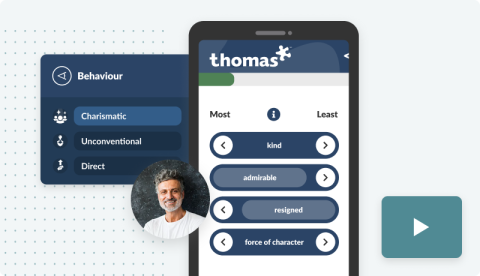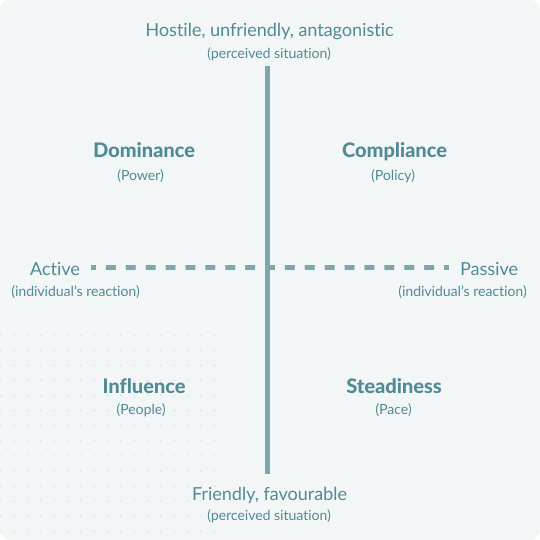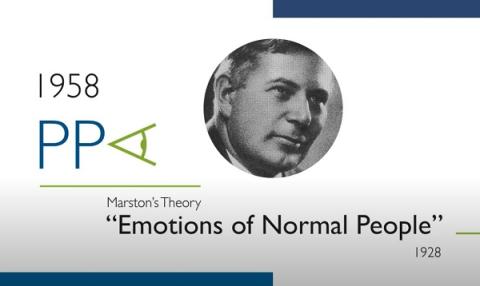DISC Assessment
In just 8 minutes get insight into a person's behaviour at work
- Recruit the right person
- Manage performance
- Improve communication
- Motivate and engage staff
- Identify areas for development
- Enhance team effectiveness

d70a.png)
Check out the latest reviews from our most delighted customers
How the Thomas DISC test works
The DISC profile test provides an accurate insight into how people behave at work, giving you a greater level of certainty when recruiting, identifying where to allocate your learning and development resources, understanding where you need to adjust your approach to avoid staff turnover and getting the best out of people through better management.


What is DISC theory?
The DISC model is an easy-to-use but very accurate theory to understand human behaviours. It provides an increased level of self-awareness and awareness of others through a common language and framework of understanding.
According to William Moulton Marston’s research, published in the book “Emotions of Normal People” in 1928, people’s behaviour is based on an individual’s perception of and reaction to a situation.
Marston narrowed this into four behavioural types of styles which are sometimes referred to as DISC personality types:
- D - Dominance (with description)
- I - Influence/Inducement
- S - Steadiness/Submission
- C - Compliance
Whilst most people will show all four of these behaviour patterns at times, an individual will display one or more of them consistently in the workplace. This is because each person develops a behavioural style which places particular emphasis on certain postures and less emphasis on others.
How can the Thomas DISC test be used?

In 1958, Dr Thomas Hendrickson developed the Thomas Personal Profile Analysis (PPA) assessment based on Marston’s theory.
The DISC profile assessment is a quick but very effective way to understand an individual’s workplace behaviours, giving you a greater level of understanding of their capabilities and how they are likely to act.
This information can be used to answer a variety of questions such as:
- What motivates them?
- What are their strengths and limitations
- What is their preferred communication style
- How do they interact with their peers and team?
- How do they behave under pressure?
- Are they showing any frustrations in their current situation?
- What management or coaching style will get the best out of them?


